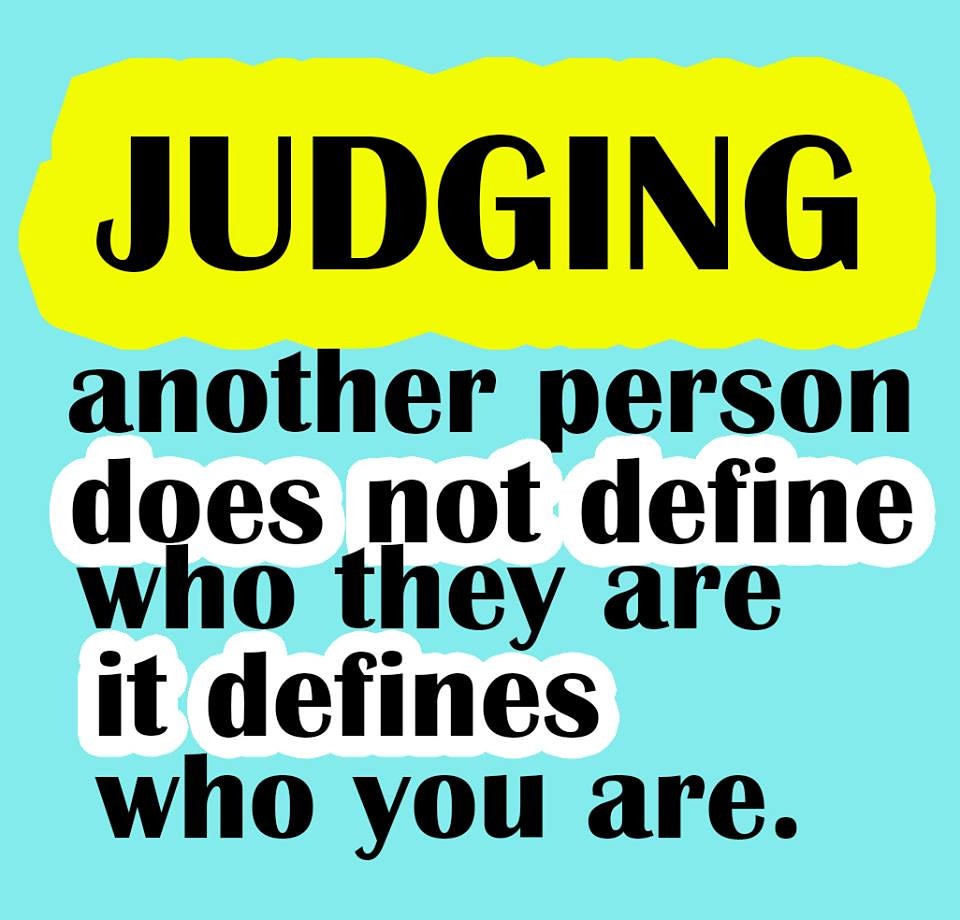Judging others on their appearance, outfit, and communication is quite normal. Don’t hold yourself accountable for this negative habit. We all think in the same way.
However, the key aspect is that we need to work on ourselves. We need to be less judgmental, more open, and accept people with their flaws. Because no one is perfect, including ourselves. So as we demand and desire not to be judged by others, similarly, people expect the same from us.
The first step is to recognize when you’re being critical. We often judge people without thinking.
Once you realize and accept that you’re too critical of others, the next phase is to learn how to be less judgmental. For this, I’ve shared simple tips that you can follow and think about others with a fresh approach. Let’s get down to these tips.
1. Show compassion
Often the most helpful tip for people looking to be less judgmental and more compassionate is to remember that we all have our own flaws and that everyone has unique qualities. You can find beauty in even the most imperfect people, and by choosing to focus on these, you will be able to show compassion and empathy towards others.
To help yourself become less judgmental, you must practice empathy. This is an essential skill to help you avoid making negative judgments about other people. This means that you try to see a situation through the other person’s eyes and focus on their perspective. By letting go of your own judgments, you will be able to appreciate the good in others.

2. Stop judging them on their appearance
Different people have different lifestyles, and we cannot alter others according to ourselves. The bottom line is that everyone is beautiful and unique in their own way; we need to understand all of us cannot be the same. Therefore appearances are often deceptive. The person who looks ordinary and doesn’t spend so much on himself might have many responsibilities and a ton of work to do, and who knows that he doesn’t get time to dress up. Likewise, the rude and arrogant person might have financial issues or other problems that have shaped him the way they are. We need to understand that we just know one side of the story, so you need to train your brain to understand unsaid words and unseen realities.
3. Identify your judgmental tendencies
Often, we judge others, and we don’t realize it. Consequently, we make them uncomfortable and sad from this act. So first, identify and accept the fact that you are hurting others. Then see what the things that trigger this thing in you are.
Become more aware of your own judgmental tendencies. It’s a clever idea to journal about your experiences, especially the ones you don’t understand. For example, you don’t like how someone speaks. You ask yourself why “why is that so?.”
And you don’t find a satisfactory answer, which means it’s baseless observation, and you’re needlessly getting judgmental. Stop there.

4. Train your mind for empathy
Try to become more empathetic. When you’re being critical, give a reminder to yourself that you might be dealing with a situation that you’re not fully aware of. By being empathetic, you’ll be understanding of someone else’s perspective. You’ll also be more tolerant of others’ actions and emotions. And, you’ll feel better as a result. This is especially important if you’re dealing with people in tricky situations, like a partner or child.
5. See positivity in others
Finding out the inabilities of others is extremely easy but focusing on their good habits is really hard. We just focus on the rude behavior and their mood, but we don’t try to find out why they behave like this. So, we pass our comments and impose our negative thoughts on them.
Therefore we need to change our behavior, focus on good things, practice gratitude, and identify their area of positive sections to show affection. Try to listen to them and concentrate on their words to find out their problems to help them.
6. Make friends of diverse backgrounds
It’s important to find people with whom you can connect and form positive relationships. Moreover, it will help you be more accepting and understanding of other people. In addition, this will allow you to improve your mental health. You can start by befriending new people who have diverse interests. Once you’ve done this, you’ll be less judgmental to others in the future.
Get involved with new people. Make friends with people who have different interests or lifestyles. Attend courses, visit new neighborhoods, and learn a new language. This way, you’ll become more tolerant and accepting of other people.
7. Be kind
Learn to be kind. Judgmentation can stem from insecurity or pain. Taking self-care measures to become more thoughtful and accepting will go a long way. You’ll become a better friend to yourself and others by being humbler.

The most major step to change your behavior is consciously making an effort to be kind to yourself and to others. If you’re judgmental, you may have to examine your own beliefs. You probably have a tendency to be too critical, even if you don’t feel like you’re being judgmental. While it’s not nice to criticize someone, it’s equally important for you to understand that it’ll take time to remove this negative trait from your personality.
You can choose to befriend people who are different from you. You can also attend a new neighborhood or learn a new language. This will help you see how other people live and work and better understand their culture.
8. Be curious
Be curious about other people. Often, people who run late may have a situation. Instead of judging or assuming about the person, try to understand their motivations by asking questions. You’ll better relate what they’ve gone through. This way, you’ll give them a margin and be less judgmental.
Be curious about other people’s lives. Ask yourself what makes them the way they are. Are they facing something that they’re trying to hide? If so, try to understand what’s going on with them. This way, you’ll be able to be less judgmental.
By exploring the underlying reason behind their actions, you can become more compassionate. It’s also important to remember that those who judge others are also harsh on themselves. By becoming less judgmental, you’re helping yourself indirectly.
9. Start accepting things
We all need to understand that things cannot always happen according to us. So tell yourself that I have the right to live and choose things according to myself. The same is for others. Create affirmation notice for yourself and enhance a behavior of letting go of things.

10. Admit you are wrong
Human nature and self-obsession always tell your mind that you are always on the right path. This leads your mind towards destruction and self-arrogance. You need to agree with the accusation and let others put their perspectives. Give a chance to them to have their final say without letting them down. Moreover, when some blunder happens from your side, confess and develop a habit of listening comments from others in a positive way.
11. Think of yourself in someone’s place
As we all know, we cannot feel the pain of others as long as it passes through us. So the effortless way to manage it is to put yourself in their shoes. Feel their pains, understand their problems, and deeply analyze why they’re doing what they’re doing. Lastly, think about how you can help them, and surely, being not judgmental would be one of the ways to assist them.
Closing remarks
By broadening your horizons and allowing yourself to experience different cultures and people, you can begin to change your mindset and be less judgmental. Be realistic, but remain positive.
Become less judgmental by slowing down your judgment. Getting to know someone better takes time. It’s not always accurate to judge someone based on what they look like. Give a person a chance to prove themselves before making an uninformed judgment. Being less judgmental can result in a stronger sense of compassion. It also helps you form stronger friendships and improve relationships.





